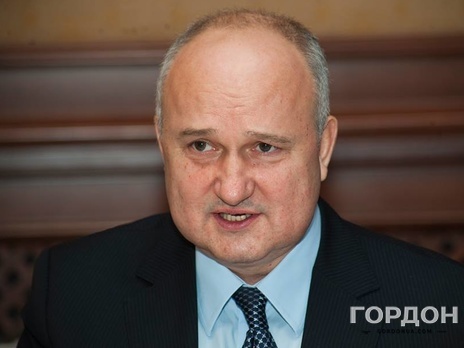In an address to the Lennart Meri Conference in Tallinn yesterday, Igor Smeshko pointed to one of the most dangerous asymmetries of the situation in Ukraine: Vladimir Putin, he said, cannot occupy Ukraine and subdue a partisan war, but the Kremlin leader can “provoke a global conflict.”
The former head of the SBU and an advisor to Ukrainian President Petro Poroshenko, says this is the reason that the conflict must be of concern to all of Europe and the West more generally.
What is at stake, he argued, is whether Russia will be able to “stop the processes of European integration,” acquire a strong voice in European affairs, and set itself up as a global counterweight to the United States.
Asked why Vladimir Putin decided to engage in this direct confrontation of the West, Smeshko said that Moscow was shocked by the two Maidan protests in Ukraine in 2004 and 2014. “Those protests showed,” he said, “that a developed civil society already exists in Ukraine and that the ideas of democracy are spreading ever closer to Russian borders.”
“The conversion of Ukraine into a flourishing and strong democratic country would be a death sentence for the existing authoritarian regime in Russia and even represent a danger for its disintegration,” the Ukrainian presidential advisor said. Consequently, Putin felt he had to suppress Ukraine in order to protect his personal power.
A second reason Putin has moved in Ukraine, Smeshko says, is that the West has not pursued a sufficiently well-developed security strategy. Instead, “the leadership of the US has been concentrated not on the development of Euro-Atlantic civilization but on the problems of ‘global peace,’ and this could have played a role.”
Putin will pursue his plans to restore a post-Soviet empire “just as far as he is permitted to do so,” the former intelligence agency head said, adding that his listeners should remember what the ancient Romans said: “”Strength restrains; weakness provokes.”” That is true “not only regarding Ukraine,” he argued.
The current conflict may go on for a long time, given the size of the countries involved, but Smeshko suggested that it will not be solved by military means alone. Ukrainians will continue to fight and consequently, it will be “impossible” for Moscow “to occupy Ukraine and win a partisan war” there.
The West must remain united regarding sanctions because any break in them will be exploited by Moscow and seen by the Kremlin as an indication that it can win through, especially given the financial help it is providing to “ultra-right and ultra-left” groups in the West who are giving it support.








